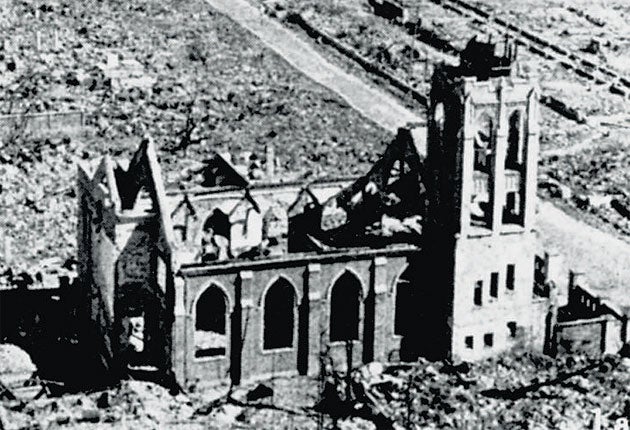Japan must develop nuclear weapons, warns Tokyo governor

Tokyo's outspoken Governor says his country, which suffered history's only nuclear attack, should build nuclear weapons to counter the threat from fast-rising China.
In an interview with The Independent, Shintaro Ishihara said Japan could develop nuclear weapons within a year and send a strong message to the world.
"All our enemies: China, North Korea and Russia – all close neighbours – have nuclear weapons. Is there another country in the world in a similar situation?
"People talk about the cost and other things but the fact is that diplomatic bargaining power means nuclear weapons. All the [permanent] members of the [United Nations] Security Council have them."
The comments from the leader of Japan's second-most powerful political office come amid concerns about China's growing military muscle.
Beijing announced last week that its 2011 defence budget will be hiked by 12.7 per cent to 601.1bn yuan (£56.2bn) up from 532.1bn yuan last year. Most experts say that those figures are an underestimate.
China officially overtook Japan as the world's second largest economy last month. Despite booming bilateral trade, the relationship has regularly been shaken by disputes over territorial and historical issues. Ties are still struggling to recover from a maritime clash last year over the Senkaku Islands, which are owned by Tokyo but claimed by Beijing.
Mr Ishihara said the clash, which ended when police released the captain of a Chinese ship accused of ramming Japan's coastguard vessels, had exposed his country's weakness in Asia. "China wouldn't have dared lay a hand on the Senkakus [if Japan had nuclear weapons]."
The right-wing Governor added that a nuclear-armed Japan would also win more respect from Russia, which seized four Japanese-owned islands during the Second World War. And he advised his constitutionally pacifist nation to scrap restrictions on the manufacture and sale of weapons. "We should develop sophisticated weapons and sell them abroad. Japan made the best fighters in the world before America crushed the industry. We could get that back."
Conservatives have long demanded that Tokyo ditch its postwar constitution, which was written during the American occupation of the country and renounces war as a sovereign right.
Japan's so-called non-nuclear principles, produced during the time of Prime Minister Eisaku Sato in 1964-72, later committed the country to never produce, possess or allow the entry of nuclear weapons. The principles were partly a response to popular revulsion over the deaths of more than quarter of a million mostly civilians in the 1945 US bombing of Hiroshima and Nagasaki.
Mr Ishihara claimed that Mr Sato, who won the 1974 Nobel Peace Prize for his opposition to plans for a nuclear weapons programme, was at the same time secretly approaching the US for help in developing an atomic bomb.
"If the Sato administration had unilaterally developed nuclear weapons then, for a start North Korea wouldn't have taken so many of our citizens," said the Governor, referring to Pyongyang's abduction of an unknown number of Japanese people.
Mr Ishihara is expected to step down this year after 12 years governing the city of 13 million people. He once called gay people "abnormal" and elderly women who can't have babies "useless". His right-wing politics and persistent warnings about the rise of China have earned him the sobriquet "Japan's Jean-Marie Le Pen".
Join our commenting forum
Join thought-provoking conversations, follow other Independent readers and see their replies
0Comments